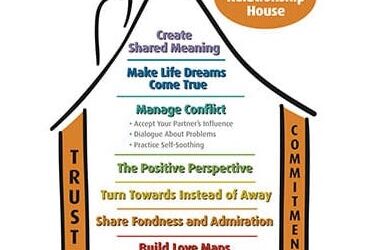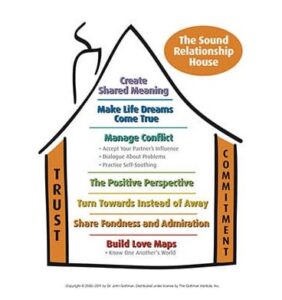Hello everyone — hope you’re having a not-too-hot summer!! I have been staying inside and producing videos for my new Doctor Becky Whetstone You Tube Channel. The idea is to make short videos – less than 20 minutes, anyway, that teach people some of the most important concepts I know about how to have a healthy life as an adult and in a family. It’s all about relational health!!! All of it is the same information I tell my clients over-and-over in my office every week. Now you can catch it all in the comfort of wherever you are, for free. Enjoy, and do let me know if there are any topics you’d like to see me cover.
 Please visit and subscribe to my Doctor Becky You Tube channel. I’m uploading videos on how to be healthy in relationships and as an individual. https://goo.gl/DTrAfR
Please visit and subscribe to my Doctor Becky You Tube channel. I’m uploading videos on how to be healthy in relationships and as an individual. https://goo.gl/DTrAfR

Doctor Becky’s New You Tube Channel — please subscribe!
What’s reasonable to ask of your spouse? Sometimes a therapist must be the judge.

What’s reasonable to ask of your spouse? Sometimes a therapist must be the judge.
Clients in couple’s therapy bring with them a story. The same story could be told 100 different ways by 100 different people, but the story a client tells, the way they tell it, and the meaning they give it is all very important information. For the therapist these stories can be like watching a movie, reality show, sit com, or reading a compelling book, provoking feelings such as anger at life’s injustices, sadness at the losses, and laughter at how ridiculous people can sometimes be.
Some of the most eye-opening things I have heard in couple’s therapy are often found in how far some spouses are willing to push another, and the requests that one spouse makes of the other. For instance, “Why did you not come home last night?” or, “I need you to text me every hour we’re apart and let me know you’re OK.” What may sound absolutely unreasonable to you and me may seem very reasonable to another.
One thing I’ve learned over the years in couple’s therapy is that when a spouse faces a behavior that could lead them straight to the marital dog house, and his or her explanation doesn’t make sense, it is because the person is leaving out important details, or just flat-out lying. When I first started out as a therapist, I’d blame myself for not being smart enough to figure out what I was missing, but now I know it’s not me, it’s them, and I am highly likely to tell them so.
Another thing I’ve learned is that occasionally I might as well be a judge with a black robe and gavel, as I must occasionally make rulings about what is reasonable in a marriage, and what is not. It is a very common scenario when one spouse really wants their partner to do something the other person really does not want to do. Where do we spouses draw the line between making a stand for what we’re comfortable with versus being a loving, supportive and accommodating spouse?
Luckily, I have a great sense of what is reasonable and what isn’t, and with that in mind, I’ll share a few rulings I have had to make during couple’s therapy:
1. Husband says to wife of many years, who has stated she is terrified of divorce and going it alone: “OK then, I want you to let me keep my girlfriend, and we will stay married and be like we always have been, and then we won’t have to get divorced, and we won’t have to change our lives.”
Ruling: Request denied. Never ask your spouse to give up their inner peace so you can have it. It is immature to bring your ideal-world fantasies into your marriage and seriously propose it to your partner, especially when you’re smart enough to know that your request would be a bitter pill for any person to swallow.
2. Husband says: “OK, OK, I have kept my master/slave needs from you all these years, but now that you know, let me be your slave! I would be the happiest man on earth if you would just let me be your slave and order me around, and then occasionally let me dress as a French maid and serve you tea while you abuse me.”
Ruling: I didn’t have to deny this one. The wife quickly said, “If you want this to be a part of our marriage, and if you continue on this path, I will not respect you and will not stay married to you, period.” I felt her response was very reasonable, and applauded her for being true to herself and stating her stance clearly and firmly.
3. Wife says: I know I have cheated on you with my work colleague, and now you want to tell my boss, my colleague’s wife, and for me to quit my job, but that’ll destroy two families instead of just one. I will behave, I promise. I will never be romantic with my friend again. Ever. Just keep this all in our family, and don’t make me leave the job I love.
Ruling: Request denied. I am a firm believer that spouses who cheat should imagine all the things that might occur as a result before they take the plunge into infidelity. Asking for mercy and forgiveness after-the-fact does not sit well with spouses who have been traumatized by betrayal. Many times, for there to be any chance of recovery, the traumatized spouse will need for the cheater to take drastic, sometimes difficult, painful and embarrassing action to win back the trust and confidence that the relationship will need moving forward. I think having to leave a beloved job where the betrayal took place is a reasonable request if a marriage is to survive. Another important point is that a request like this is quite manipulative, attempting to lay guilt on the devastated spouse should he or she be so cruel as to make them pay a heavy price for their marital crime. Don’t fall for it. Caveat: I would recommend you do call the spouse, don’t tell the boss. It could affect your spouse’s ability to get re-employed, which could hurt you/your family. If it ever happens again, though, tell whomever you choose, then leave.
4. Wife says: “You are more attached and devoted to your secretary than you are to me. Your closeness is totally inappropriate! I want her gone! It’s her or me!”
Ruling: It depends. If this is paranoia-based, meaning there are no solid facts to back up the argument, then of course the secretary should stay. But if the accusations are based in provable facts, then of course, the secretary needs to go. I have seen both situations in my practice. This is very common and occurs when spouses allow themselves to share their personal life details with their assistants and co-workers, which builds a bond of caring and closeness. Solid, professional boundaries are the best prevention.
5. Spouse says, “I have a fantasy that we will will bring other people into our bedroom and/or join a club where couples switch partners. I would like for us to try this.”
Ruling: Ugh. I see couples whose relationships are in trouble. In the history of my practice I have never seen bringing third parties into the bedroom work out in a positive way, although I am told, and have read, that it can work for some people. If it was to work, there would have to be clear rules, boundaries and communication, and my concern is not that many people are good at that.
Why do I encounter so many people who ask their partners to do what most of us would think are unreasonable things? Part of it is, when Rome is falling, one strategy might be to make a Hail Mary pass and see if against all odds, the other person catches the ball. Another part is that a certain percentage of our population are absolutely shameless, feel no guilt or remorse, and will shamelessly pursue any goal they have in mind without regard for other people’s feelings. There are many bona fide mental disorders where this is the case, but if you glob them all together, we could be looking at 20 percent of the population, or more — one in five people. Wish I had better news.
Becky Whetstone, Ph.D. is a Marriage and Family Therapist and blogger and works in private practice in Little Rock, Arkansas. www.doctorbecky.com

What creates a relationship that will last the long term.

Get to know each aspect of Gottman’s Sound Relationship House and make sure you have and maintain them in your relationship.
Every Marriage and Family Therapist is familiar with Dr. John Gottman’s theory of the Sound Relationship House, the seven things that fortify a relationship and make a marriage strong. Gottman has done so much research on what makes great marriages and what predicts divorce, by studying, testing and interviewing thousands of couples over many decades, that therapists know it’s extremely worthwhile and teach it to clients routinely.
When it comes to questions a person should be able to answer about their partner before getting married, it’s wise to look at the foundation issue of the Sound Marital House, which Gottman calls, Building Love Maps. This involves being curious and knowledgeable about the history, hopes, desires and interests of your partner. I often tell clients that if you’re successful at building love maps, you would be able to take a multiple-choice test about your partner’s life, hopes and dreams, and you’d get a high score. The way we get there is by being curious, asking questions, listening and absorbing. If you’re truly interested in who your partner is and where they’ve been and where they want to go, this should not be difficult.
We date a person to figure out if they are right for us, but a relationship won’t have legs to weather storms until the couple solidly bonds over time. The bonds will be the healthy foundation on which the relationship stands. Bonds are built by building love maps through many conversations and experiences together. These conversations and experiences lead to mutual admiration and affection. Now we have enough stock in the relationship to be able to weather the inevitable bumps and potholes that come with long term relationships. Once the foundation is formed and the bonds built, you must continue building love maps as people will change and grow in a multitude of ways.
I do have to mention difficulties you may encounter, however. I have always been a curious and interested person, and when I started dating my children’s dad years ago, I’d ask him about his life, past girlfriends, what life was like on his dad’s farm, “Hey, what was your former stepmother like?” His response: “I don’t want to talk about it.” He avoided any conversation about his life for all the years we were together, and what I did learn his sister told me. I was not a therapist then, and I wrote it off as, “He must be a private person,” and I respected that.
I wasn’t a counselor then, but if I was, I would have seen his closed-off behavior as a huge red flag. I would have known this is a man who won’t let me know who he is, who only reveals the parts of himself he chooses for me to see. There will not be emotional intimacy and deep connection because he won’t allow it. Although in the beginning of the relationship he took his wall down long enough for me to fall in love, he soon slammed the door shut and would never open it again. I had been seduced into the relationship, then left standing by myself. This pattern is not unusual in relationships.
These sorts of experiences are how we learn about life and people, and I learned a lot from that. Our eventual divorce led me to seek answers about what went wrong, what does a healthy relationship look like, because I never wanted to go through an experience like that again. That is how I ended up becoming a Marriage and Family Therapist, so all that experience and education has taught me that what Gottman writes about is true and worth knowing. It also helped me to understand what needed to be present if I was ever to have a healthy relationship.
I do have a healthy relationship today, and this knowledge is a vital part of that. If I was back in the dating scene the things I’d need to know before committing for a life-long relationship would be:
- If you become disillusioned with our relationship and the feeling lingers, will you tell speak up so we can address it right away?
- If we get into trouble we can’t resolve, will you go with me to get professional help?
- Will you work hard to bring your best self to the marriage?
- Will you be open and transparent to me, and show up as your true self?
- Will you be my best friend, and put our relationship first, above your biological family and our children?
- Will you be loyal and dependable? Will you be there for me?
- Will you read The Five Love Languages by Gary Chapman, learn my Love Languages and fill my needs in these areas on an ongoing basis?
- Will you be balanced in the time you spend on your career, hobbies, family, friends, making sure that our relationship has been fed and nourished as a priority before filling up free time with other interests?
This list may be eye-opening and seem like a lot, and it’s meant to be. We often hear that having a good marriage takes a lot of work, and these things are part of the work that is involved. Work is a verb and implies action. Good marriages take lots of action. As I go down the list, I am also keeping in mind the things couples who come see me complain about. They wouldn’t have most of these complaints if they were working on these very important areas in the relationship. The bottom line is, marriage is for big boys and girls, who are able to stay aware, mindful and tuned in to themselves and their partners. When there’s an issue, they take care of it immediately.
 Becky Whetstone is an Arkansas native and has a Ph.D. in Marriage and Family Therapy from St. Mary’s University in San Antonio, Texas. She is a Licensed Marriage and Family Therapist (LMFT) in Texas and Arkansas.
Becky Whetstone is an Arkansas native and has a Ph.D. in Marriage and Family Therapy from St. Mary’s University in San Antonio, Texas. She is a Licensed Marriage and Family Therapist (LMFT) in Texas and Arkansas. 





















































































































